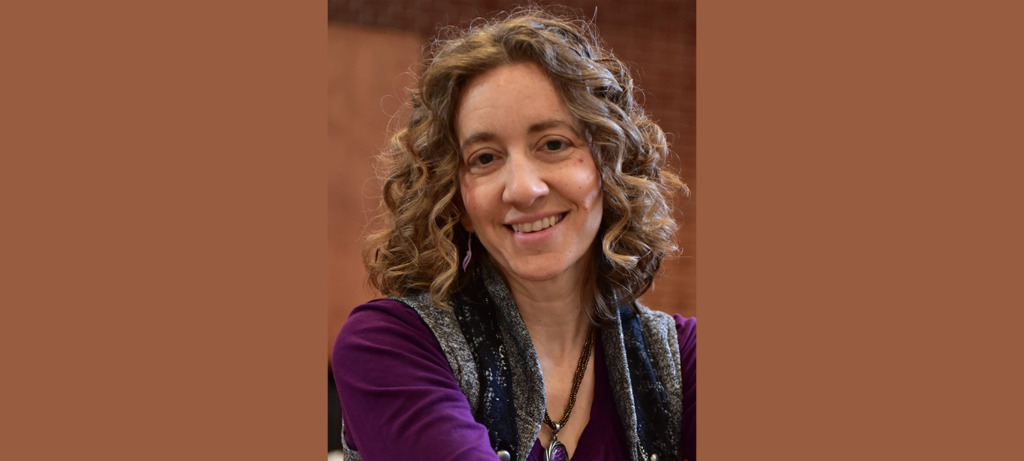JEFFERSON CITY, Mo. – A fellow member of the Our Lady of Lourdes Parish Choir in Columbia, Missouri, approached Kate Basi after practice.
“I wanted you to know, you wrote that song for me,” she gratefully stated.
It seemed that Basi’s latest liturgical composition, titled “Come, All You Thirsty,” had hit its mark.
“It’s a really humbling thing to be a part of, to be among the people who are creating the music that we walk out of church singing,” said Basi, a Catholic columnist, author, composer, wife, mother and active parishioner.
“It’s a tremendous gift and a tremendous responsibility,” she told The Catholic Missourian, newspaper of the Diocese of Jefferson City.
The Association of Catholic Publishers June 8 named “Come, All You Thirsty” as its 2022 Song of the Year.
Basi’s “Show Us Your Face” was a finalist for the same award in 2019.
“It’s a very illustrious group of nominees this year,” she stated. “I feel honored just to be included among them.”
Based on Isaiah 55, “Come, All You Thirsty” is a contemporary hymn, reminiscent of a lullaby, that invites all who are fatigued in body and soul to lay down their burdens and seek healing refreshment in God.
“This song,” Basi wrote in her composer notes, “belongs to all who are weary of battling forces – both within the Catholic community and in the world – that contradict the heart of the Gospel call. Come, Lord Jesus! Come to these broken places. Call us to the water and make us whole.”
What began with a playful exchange during a parish hymn committee meeting ended up stalking Basi for two years.
“There was some joking about how we needed another song on the ‘Come to the Water’ text,” she recalled, referring to the passage from Isaiah and the time-honored Catholic hymn by Father John Foley of the St. Louis Jesuits.
She didn’t really take the challenge seriously, “but by the time I left the meeting that day, the melody and the first phrase was already in my head,” she said.
The rest simmered for about two years.
“For a while, I kept ignoring the promptings of the Holy Spirit,” she stated. “But it kept coming back to me. So, ‘all right, all right, I’ll do it.'”
Basi doesn’t use a smartphone, which allows her to ride her bicycle to the river and escape from the noise.
“That gave me the freedom to really get into my own head and my own soul and be still,” she said.
Out of that stillness came pages of densely handwritten notes, filled with open-ended possibilities.
“Then, I would start trying to put them together and realize that line A works with lines B and C, but it could also go with this other set of lines,” she said.
The challenge is always for the lyrics to be “accurate theologically but also poetic, to say something different from what’s been said before, while containing truths that do not change,” she said.
She worked and prayed for the kind of familiarity that only God can provide.
“The thing about music for worship is that if you want the assembly to be able to sing it, they have to feel like they’ve known it their whole life, even though you’re putting it in front of them for the first time,” she said.
All of this took place during a time of great sadness and division in this country.
The song “took shape over the course of a year – its contours defined by COVID, political ugliness, and revelations of abuse, assault and police brutality,” Basi stated in her composer notes. “All these heartbreaking realities were in my thoughts as I wrote, revised and prayed.”
The third verse contains a phrase that still pierces her heart: “Come, all you wounded, to the water, you who suffer broken faith, you who fear to trust in the love of God.”
“When that came off my pencil, I said, ‘That for sure is going in there. Everything has to work around that!'” she recalled. “Sometimes you write things out, and other times, it comes straight out of the mouth of God.”
She believes that being a disciple means being part of such an invitation.
“My hope would be that singing something like this would put us all in touch with our own woundedness and make us more empathetic to others,” she said.
Basi believes her call is to explore the faith through her experience as a woman, a wife and a mother.
“The things women tend to notice are different, as are the things men tend to notice,” she said, “and we need both of those perspectives reflected in our faith.”
Basi has been serving for the past year on the steering committee for the Liturgical Composers Forum. Founded by Father Foley, the forum gives people who compose music for assemblies a chance to spend time together, worship together and pray together, culminating with an annual concert of sacred music.
She also writes books and articles, and is pleased with the reception her first novel, a faith-based offering known as “A Song for the Road,” has received over the past year.
Her heart remains rooted in sacred music. She believes the way people worship God at Mass affects how they serve him the rest of the week.
“I feel a great gratitude to be able to hopefully make a difference in this way,” she said. “That’s the purpose of writing this music: to use what God put in me to try to make the world better, to make it more like he wants it to be.”
“Liturgical music has a real power to do that,” she said, “because we walk out of church singing songs.”
– – –
Nies is editor of The Catholic Missourian, newspaper of the Diocese of Jefferson City.

